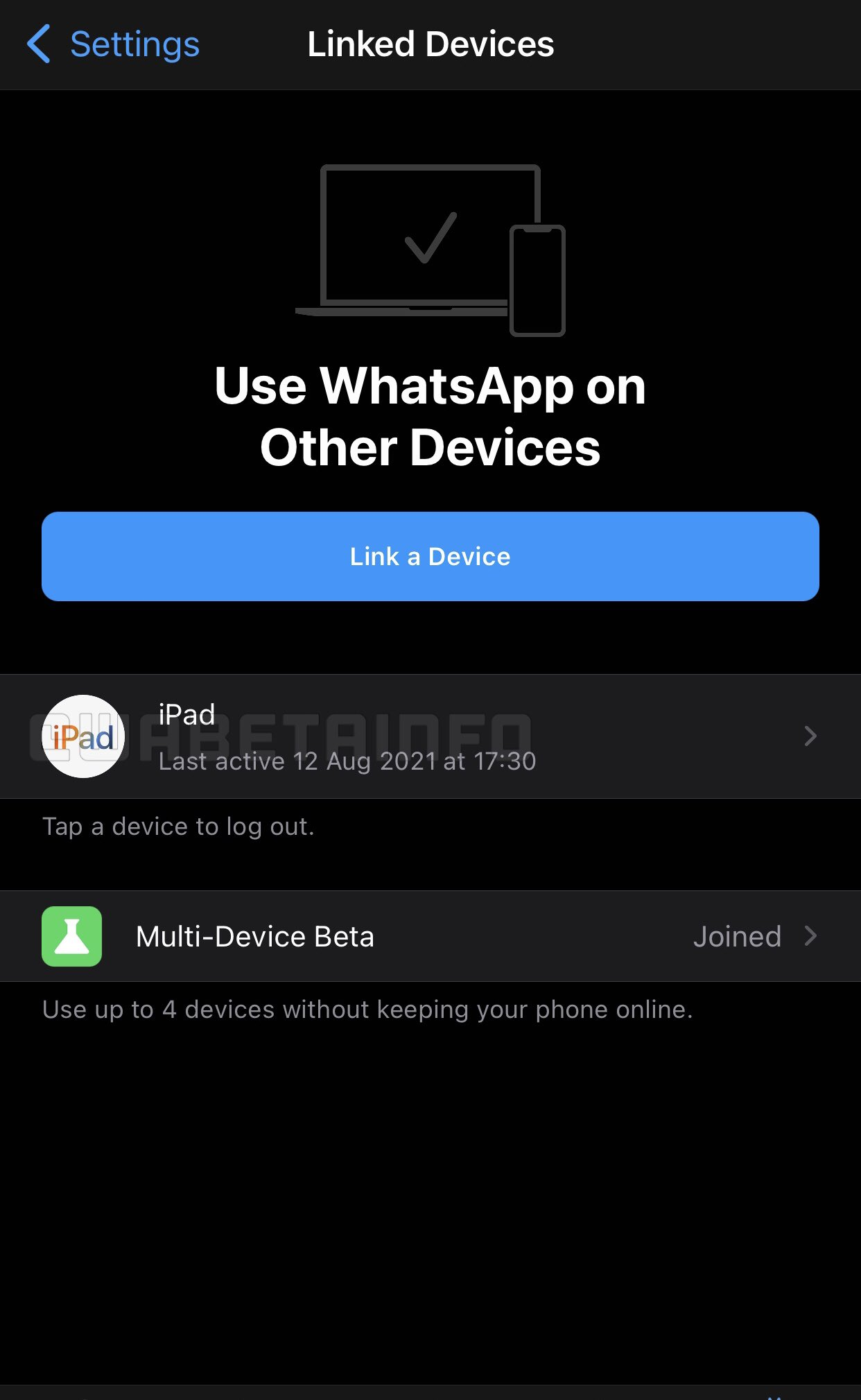A dedicated WhatsApp for the iPad has been in discussion for quite a while now, with WhatsApp’s head, Will Cathcart, telling The Verge in an interview that the company would “love to do it.”
WhatsApp has been testing out its multi-device 2.0 support in a beta version of the app for sometime now with the iPad being supported, but its still not a native app. However, Cathcart believes that the underlying tech to pave way for an iPad app is there.

We did a lot of work on the technology for supporting multiple devices,” Cathcart said, referencing the rollout of opt-in, multi-device support for WhatsApp last year. “Our web and our desktop apps now have that. If I have multi-device on, I can turn my phone off or lose my network connection and still get messages on my desktop. That would be really important for a tablet app, to be able to use the app even if your phone isn’t on. So the underlying technology is there.”
WhatsApp has also been reportedly trying to roll out a catalyst version of WhatsApp for the iPad to the Mac with screenshots being leaked adding weight to these reports and rumors that something is indeed being worked on behind the scenes.
The Verge further explains how WhatsApp’s multi-device support works and how this existing technology could very help with the release of an iPad app.

Because of the way WhatsApp encrypts messages, it historically hasn’t been able to sync chats across devices over the internet like most other messaging apps work. So if WhatsApp on your phone didn’t have access to the internet, the desktop client didn’t work. The beta version of multi-device support lets you sync your WhatsApp account on up to four devices at a time, a process that involves mapping device identifiers to an account key on WhatsApp’s servers in a way that’s still encrypted.
You may also like to check out:
- Download Windows 11 Pro ISO File Without Product Key From Microsoft
- Force Download Windows 11 Free Upgrade Right Now, Here’s How [Tutorial]
- How To Install Windows 11 On A Mac Using Boot Camp Today
- Download Windows 11 Installation Assistant For Your PC
- How To Upgrade To Windows 11 From Windows 10 For Free
- How To Create Bootable Windows 11 USB Flash Drive [Guide]
- Download: iOS 15.3 Final IPSW Links, OTA Profile File Along With iPadOS 15.3
- Jailbreak iOS 15.3 On iPhone And iPad Status Update
- How To Install macOS 12 Monterey Hackintosh On PC [Guide]
- Best iPhone 13, 13 Pro Tempered Glass Screen Protectors Available Today [List]
- Best iPhone 13, Pro Max 20W USB-C Chargers [List]
- Top iPhone 13 Pro Max Screen Protectors Available To Buy [List]
- Best iPhone 13 / Pro Cases For Protection Available Right Now
- How To Fix Bad iOS 15 Battery Life Drain [Guide]
- Apple Watch ECG App Hack: Enable Outside US In Unsupported Country On Series 5 & 4 Without Jailbreak
You can follow us on Twitter, or Instagram, and even like our Facebook page to keep yourself updated on all the latest from Microsoft, Google, Apple, and the Web.

